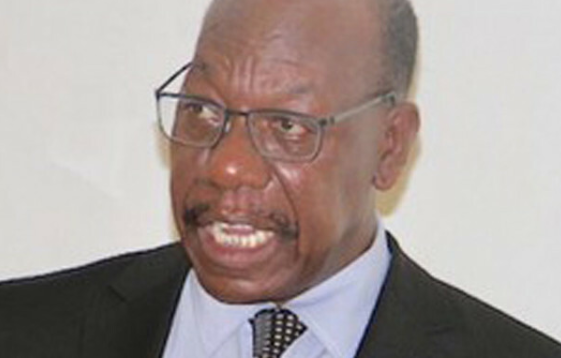The interim chairperson of the Reconstituted Joint Monitoring and Evaluation Commission (RJMEC) on Monday briefed the United Nations Security Council (UNSC) and highlighted key critical pending tasks including requirements for the conduct of elections at the end of the transitional period.
In his address delivered virtually from Juba, Maj. Gen. Charles Tai Gituai said in the assessment of RJMEC, tasks like the unification and redeployment of forces and the enactment of a permanent constitution among others are still pending.
“In RJMEC’s assessment, the tasks most critical for the conduct of free, fair and credible elections under the revitalized peace agreement are the unification of forces and their redeployment, enactment of the permanent constitution, review of political parties and electoral related laws, and reconstitution of the Political Parties Council and the National Elections Commission,” Gen. Gituai said.
He added: “I wish to underscore the importance of a people-led and people-owned permanent constitution, which will be the cornerstone of the state of South Sudan, preparing the way for a democratic transition through free, fair, and credible elections.”
While noting some progress has been achieved since the signing of the revitalized agreement in 2018, Gen. Gituai highlighted “several recurring challenges facing it”.
“The challenges include lack of sufficient resources, insufficient political will and commitment of some actors, trust deficit amongst the Parties; capacity gaps, subnational violence and activities of the holdout groups, military defections from one signatory party to another, flooding, and the COVID-19 pandemic,” he said.
Given these challenges facing the implementation, the critical tasks pending, and the agreement’s timeline nearing expiry (in Feb 2023), Gen. Gituai said the Commission has tasked the unity government to develop a clear roadmap and strategy within the framework of the peace agreement on how to implement the outstanding critical tasks as the end of the transitional period approaches.
“The roadmap should be consensus-based, with verifiable benchmarks and timelines,” he said.
He recommended that the UN Security Council actively engage the revitalized unity government to ensure implementation of the critical outstanding tasks, especially the unification of forces and the permanent constitution-making process, both tasks fundamental to the holding of free, fair, and credible elections.
“Encourage the revitalized unity government to reconcile their inter-party differences and to work collegially in the best interests of South Sudan and its people,” Gen. Gitua recommended. “Assist the unity government’s efforts in mobilizing resources from the international community to enhance implementation of the revitalized peace agreement.”
He also asked the UNSC to support the government to establish the Special Reconstruction Fund, and convene a South Sudan Pledging Conference to provide support to conflict-affected states and communities, as provided for in the Agreement.
“Continue supporting the full implementation of the revitalized peace agreement and the conduct of free, fair, and credible elections,” Gen. urged the UNSC.




